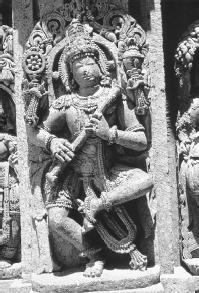HOW THE MAJOR RELIGIONS VIEW REINCARNATION
Reincarnation, the belief that the soul of a man or woman who has died will later be born again into another physical body, is an ancient doctrine, ancient even at the time of the Greek and Roman empires. Plato (c. 428–348 B.C.E.) alludes to reincarnation in many of his essays, and he seems to be speaking of the law of karma, the spiritual balance of cause and effect, in Book X of Laws when he says: "Know that if you become worse, you will go to the worst souls, or if better, to the better; and in every succession of life and death you will do and suffer what life may fitly suffer at the hands of life."
Cicero's (106–43 B.C.E.) Treatise on Glory concedes that "the counsels of the Divine Mind had some glimpse of truth when they said that men are born in order to suffer the penalty for some sins committed in a former life." Plotinus (205–270 C.E.), in the Second Ennead, writes that reincarnation is "a dogma recognized throughout antiquity…the soul expiates its sins in the darkness of the infernal regions and…afterwards…passes into new bodies, there to undergo new trials."
Reincarnation is not an approved doctrine in any of the orthodox Christian, Islamic, or Judaic religions, which all hold fast to the belief that there is but one lifetime, one Day of Judgment, and a heavenly resurrection of the body for the righteous. Reincarnation, the great Wheel of Return set in motion by one's karma, is accepted as a reality in the Hindu and Buddhist religions, as well as certain mystical sects in Judaism and Islam.
In the early days of Christianity, however, even the Church's greatest leaders, such as St. Clement of Alexandria (150–215 C.E.) in his Exhortations to the Pagans, stated their beliefs in the soul's preexistence: "We were in being long before the foundation of the world. We existed in the eye of God, for it is our destiny

The Christian philosopher St. Augustine (354–430 C.E.) asked the eternal question in his Confessions:"Say, Lord…did my infancy succeed another age of mine that died before it? Was it that which I spent within my mother's womb?…and what before that life again, O God…was I anywhere or in any body?"
Even though the majority of Eastern cultures maintain a belief in reincarnation as an integral element in their religious faiths, people—young children, in particular—are not encouraged to "remember" past lives. Regardless of such admonitions against pursuing the knowledge of karma acquired from prior life experiences, the holy books of Eastern faiths teach reincarnation with none of the reluctance of the West.
The chief theological work of the Hindus, the Upanishads, expresses the doctrine of rebirth in the poetic imagery of a goldsmith who takes a raw piece of gold and shapes it into another more beautiful form. "So verily, the Self, having cast off this body and having put away ignorance, makes another new and more beautiful form."
The Anguttara Nikaya, a Buddhist text, observes that "the wise priest knows he now must reap the fruits of deeds of former births. For be they many or but few, deeds done in covetousness or hate, or through infatuation's power, [he] must bear their needful consequence."
Although the Qur'an, the holy book received by the prophet Muhammed, doesn't really address the concept of past lives and rebirth, Sufism, a mystical sect of Islam, accepts transmigration of souls as a reality. In the words of the Sufi teacher Sharf-U'D Din-Maneri: "O Brother, know for certain that this work has been before thee and me in byone ages.…No one has begun this work for the first time."
Orthodox Judaism also rejects reincarnation as doctrine, but the Hasidic sect and those who follow the teachings of the Kabbalah, a collection of mystical texts first published in 1280, accept the belief in the transmigration of souls as a firm and infallible doctrine. Rabbi Manasseh ben Israel (1604–1657), the revered theologian and English statesman, said that reincarnation was a fundamental point of their religion: "We are therefore duty bound to obey and accept this dogma with acclamation…as the truth of it has been incontestably demonstrated by the Zohar, and all the books of the Kabbalists."
In Religion and Immortality, G. Lowes Dickinson presents his view that reincarnation offers "…a really consoling idea that our present capacities are determined by our previous actions and that our present actions again will determine our future character." Such a philosophy, Dickinson observes, liberates people from the bonds of an external fate and places them in charge of their destiny: "If we have formed here a beautiful relationship, it will not perish at death, but be perpetuated, albeit unconsciously, in some future life. If we have developed a faculty here, it will not be destroyed, but will be the starting point of later developments. Again, if we suffer…from imperfections and misfortunes, it would be consoling to believe that these were punishments of our own acts in the past, not mere effects of the acts of other people, or of an indifferent nature over which we have no control."
DELVING DEEPER
Goring, Rosemary, ed. Larousse Dictionary of Beliefs and Religions. New York: Larousse, 1994.
Head, Joseph, and S. L. Cranston. Reincarnation: An East-West Anthology . Wheaton, Ill.: Quest Books, 1968.
May, Robert M. Physicians of the Soul: The Psychologies of the World's Great Spiritual Teachers. Warwick, N.Y.: Amity House, 1988.
Smith, Huston. The World's Religions. New York: Harper San Francisco, 1991.
Sullivan, Lawrence E., ed. Death, Afterlife, and the Soul. New York: Macmillan, 1989.
Zaehner, R. C. Encyclopedia of the World's Religions. New York: Barnes & Noble, 1997.
DELVING DEEPER
Eerdman's Handbook to the World's Religions. Grand Rapids, Mich.: William B. Eerdman's Publishing, 1994.
Fox, Robin Lane. Pagans and Christians. New York: Alfred A. Knopf, 1989.
Head, Joseph, and S. L. Cranston. Reincarnation: An East-West Anthology. Wheaton, Ill.: Quest Books, 1968.
McDannell, Colleen, and Bernard Lang. Heaven: A History. New York: Vintage Books, 1990.
DELVING DEEPER
Brunton, Paul. A Search in Secret India. New York: Samuel Weiser, 1972.
Crim, Keith, ed. The Perennial Dictionary of World Religions. San Francisco: Harper Collins, 1989.
Head, Joseph, and S. L. Cranston. Reincarnation: An East-West Anthology. Wheaton, Ill.: Quest Books, 1968.
Hinduism Today. http://www.hinduism-today.com. 28 September 2001.

Understanding Hinduism. http://www.hinduism.co.za. 28 September 2001.
DELVING DEEPER
Crim, Keith, ed. The Perennial Dictionary of World Religions. San Francisco: Harper Collins, 1989.
Eerdmans' Handbook to the World's Religions. Grand Rapids, Mich.: Wm. B. Eerdmans Publishing Co., 1994.
Head, Joseph, and S. L. Cranston, S.L., eds. Reincarnation: An East-West Anthology. Wheaton, Ill.: Theosophical Publishing House, 1968.
Larousse Dictionary of Beliefs and Religions. New York: Larousse, 1994.
Unterman, Alan. Dictionary of Jewish Lore and Legend. London: Thames and Hudson, 1991.
User Contributions:
Comment about this article, ask questions, or add new information about this topic:
How the Major Religions View Reincarnation forum

11. And he greatly rejoiced with wonder and fear, and confessed that before he was blind. And now after this, he said, I see all, I know everything, I am god.
12. And Iesus again said unto him, How canst thou know all? Thou canst not see through the walls of thine house, nor read the thoughts of thy fellow men, nor understand the language of birds, or of beasts. Thou canst not even recall the events of thy former life, conception, or birth.
13. Remember with humility how much remains unknown to thee, yea, unseen, and doing so, thou mayest see more clearly.
This passage from the dead sea scrolls clearly shows Jesus talking about reincarnation
All the Fathers of the early Christian Church who addressed the topic of reincarnation unanimously rejected the idea.
It is true that the Church Father, Origen of Alexandria, entertained the theoretical possibility of the pre-existence of the soul in his speculative work, First Principles. However, there is considerable difference between the pre-existence of the soul and reincarnation. The former does not necessarily imply the latter. Elsewhere Origen specifically rejected the doctrine of reincarnation.